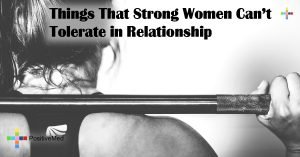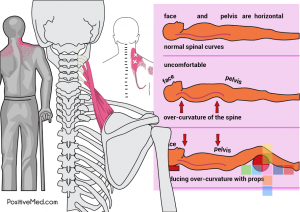
THIS Can Predict How Much Proximity You’ll Have in Your Relationship
[nextpage title=”…”]
Every person in a serious relationship wonders how close they should be, but it really depends on the couple. There are two people in every relationship, each with their own personalities. Their personalities, and how they match up, will go a long way in predicting how close a relationship will be.
How Personality Affects Closeness Is Different for Men and Women
According to a study on adult attachment and relationship quality by Collins, Nancy L. and Read, Stephen J., certain aspects of your own personality can determine how happy you are in your relationship, but it might depend on your gender. The study found that how comfortable a woman is with closeness is an important factor in her relationship quality. For men, how anxious they were about being abandoned or unloved was a more common factor.
Another study at Florida State University found that the closeness of a relationship for women in particular was correlated with 5 personality traits–openness, conscientiousness, extraversion, agreeableness and neuroticism. The study followed 278 newlywed couples for two weeks. Closeness in the relationship went up the more agreeable and open the woman in the relationship was.
Dr. Andrea Meltzer, an author of the study, is not surprised at all by these results. Men have a tendency to be more interested in being close and will initiate more often than women in general. Therefore, if a woman is more open and agreeable, she is more likely to be receptive to her husband’s advances. However, the study didn’t show if these more agreeable women were closer to their husbands because they wanted to please them or because they genuinely enjoyed the closeness.
RELATED ARTICLE: 9 Ways to Know If Your Partner Is a Lovemaking Addict
[/nextpage] [nextpage title=”…”]
Similar Personality Traits Predict Different Outcomes at Different Life Stages
The Big 5 personality traits mentioned above pop up often in research regarding personality and relationships. A report published in Psychology and Aging in 2007 compared these traits in married couples and found something interesting. It seems that couples who have similar personality traits were closer in the early years of their marriage, but got less close later in life.
It is possible that it is easier to be similar earlier in life, but when life gets more demanding, having different traits is helpful. A couple can achieve more when each has their own strengths. Nonetheless, this can be overcome by deciding together how to handle situations neither enjoys. For example, if both parties hate balancing the checkbook, take turns or hire someone else to manage your finances.
Remember that well-matched personalities do not result in perfect, conflict-free relationships. In fact, experts still don’t know what two well-matched personalities will necessarily look like. If similar traits are good in early life, but can result in conflict later, should you look for opposite traits and power through it early on or similar traits and work through it later? None of these questions have answers, but that’s okay. Relationships aren’t meant to be predictable.
There is no question that the personality traits that determine how you behave help determine how close you feel and are to your partner. Researchers are still exploring all of the subtle and obvious effects personality has on the closeness of relationships. With more knowledge of what causes a lack of closeness and insight into how to develop closeness, couples can be better equipped to handle problems within relationships.
[/nextpage]






